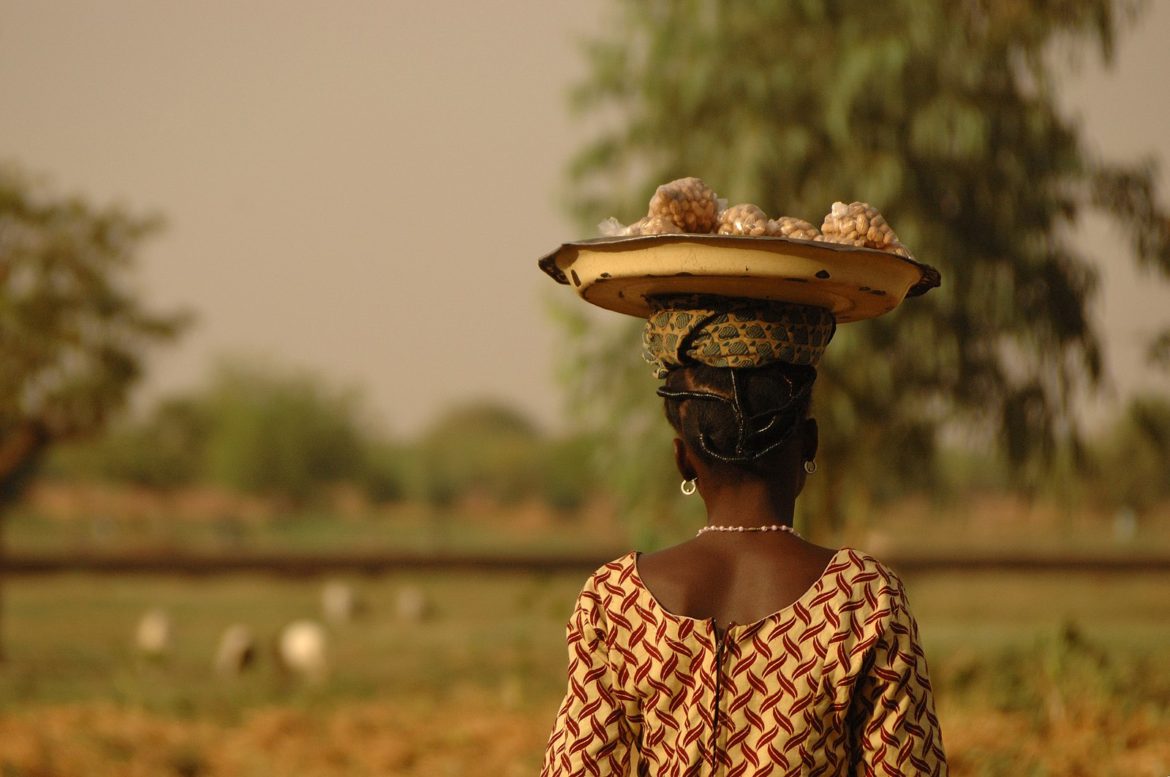Climate change’s direct effects on the environment are well-known among most people today, however there are many other interrelated issues that are often overlooked. One of these issues is how climate change has exacerbated gender-based violence against women and girls across Africa. It may be difficult to see the link between these two issues, however under closer examination, it becomes clear the impact that the scarcity of basic resources such as food and water have on increasing gender-based violence.
One form of gender-based violence against women, and in this case girls, is child marriage. Currently in sub-Saharan Africa 40% of girls are married before the age of 18 and many of the reasons for child marriage are rooted in the scarcity of resources that have only increased as a result of the climate crisis. For example, due to increasing greenhouse gases which cause global warming, extreme droughts have become more common, tripling in frequency from 1970-79 to 2010-19. These extreme droughts reduce the accessibility to food and water which for many families results in financial and/or survival stress. In order to reduce this stress the girls of the family are often sold off in marriage in exchange for cattle. It is thought that about 12 million more young girls have been married off since the increasing occurrence of weather related disasters.
Another problem which stems from decreased accessibility to resources is the distance which women and girls must now travel to obtain food and water. In many countries across Africa, gender norms have caused the responsibility of gathering supplies to fall upon women and girls, with women in every 8 out of 10 households being responsible for fetching water. Therefore, by having to travel further (on average six kilometres each way, by foot through tough terrain) and to regions which the women may not be familiar with, women and girls are more at risk of sexual assault. This risk increases even more when the areas they now have to travel to are under the control of armed gangs. Although extreme droughts have been increasing in frequency since as early as the 1970s, it has only been since 2010 that temperatures have significantly risen, particularly in Sahel and Southern Africa.
Not only is traveling to different locations to obtain resources dangerous, but there has been an increase in the exploitation of women and girls by resource vendors for many years now. For instance, along the coasts of Africa, fish are an essential resource. However, as a result of overfishing, fish too has become scarce. Due to its increasing scarcity, acquiring fish from fisheries has become more competitive. This has led to fishermen not only demanding money for their fish but also sex, as they are aware that they are capable of exploiting women experiencing desperation. Fishermen are not the only men using this type of exploitation. Many farmers, vendors, and landowners have also began insisting on sex in exchange for food or rent, now cognizant of how scarce and competitive resources have become.
Women and girls have also become more at risk of domestic abuse. Financial stress and the stress of survival (such as access to basic necessities like food and water) increases tensions as well as arguments between partners which often develop into violence. In Uganda, women also reported being too tired for household chores or to engage in sex with their husbands due to the increased distance of travel for retrieving food and water. In these scenarios, some men also tend to resort to violence. Abuse also commonly occurs in the aftermath of natural disasters. Specifically, floods, cyclones, and droughts (which are major causes for resource scarcity) increases violence and sexual abuse including domestic abuse, as it did following cyclone Idai in Zimbabwe.
Unfortunately, gender-based violence will only continue to worsen as climate change continues to worsen. It seems the only true long-term solution to prevent worsening gender-based violence against African women and girls is to work to solve the climate crisis. Rather than overlooking this intersection between women’s rights and climate change, more attention and awareness on the topic is needed in order to create an effective solution.
Edited by Olivia Shan
Hi I’m Jenna Hicks. I am a third year student studying International Development with a minor in Political Science at McGill University. I have a strong interest in human rights issues as well as feminst related topics and I look forward to being able to share these interests with the Catalyst audience.

